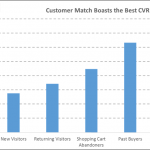Google Turns On Incognito Mode In iOS Search App
by Laurie Sullivan@lauriesullivan, September 28, 2016
In a turn of events intended to protect consumers by allowing them to keep searches private, Google has added an “incognito” mode in its iOS app. The feature, similar to search in the Chrome browser, allows users to surf the Web without having searches and browser history collected and saved. It’s unclear how that will affect advertising.

Unni Narayanan, director of Google product management, wrote in a post that for added security, those using the app can enable Touch ID, which ensures that only “you can re-enter your existing incognito session if you exit the app.”
Google also added two additional privacy features. The first provides the ability to watch YouTube videos in the search results without having to open the app or go to the video site’s mobile Web page through a browser. It reduced the need to load new Web pages, which means less load times.
Narayanan also writes about making changes “under the hood,” several updates that he hopes will make the “app twice as reliable and less likely to crash, which means more searches and fewer sighs.”
The behavior of those using the technology during the past few years continues to change, as Google and others attempt to give individuals more choices around keeping searches privacy and data collection.
Interestingly, Pew Research Center released stats earlier this month suggesting 86% of Internet users have taken steps online to remove or mask their digital footprints, but many say they would like to do more or are unaware of tools they could use.”
The actions range from clearing cookies to encrypting their email, from avoiding using their name to using virtual networks that mask their internet protocol (IP) address.
Some 55% of Internet users have taken steps to avoid observation by specific people, organizations or the government. Many say the purpose of their attempted anonymity is to avoid “social surveillance” by friends and colleagues, rather than the government or law enforcement, according to the PEW findings.
Some 33% of Internet users say they try to avoid hackers or criminals; 28%, advertisers; 19%, people from their past; 19%, certain friends; and 17%, people who might criticize or harass them round out the top five.
MediaPost.com: Search Marketing Daily
(14)












